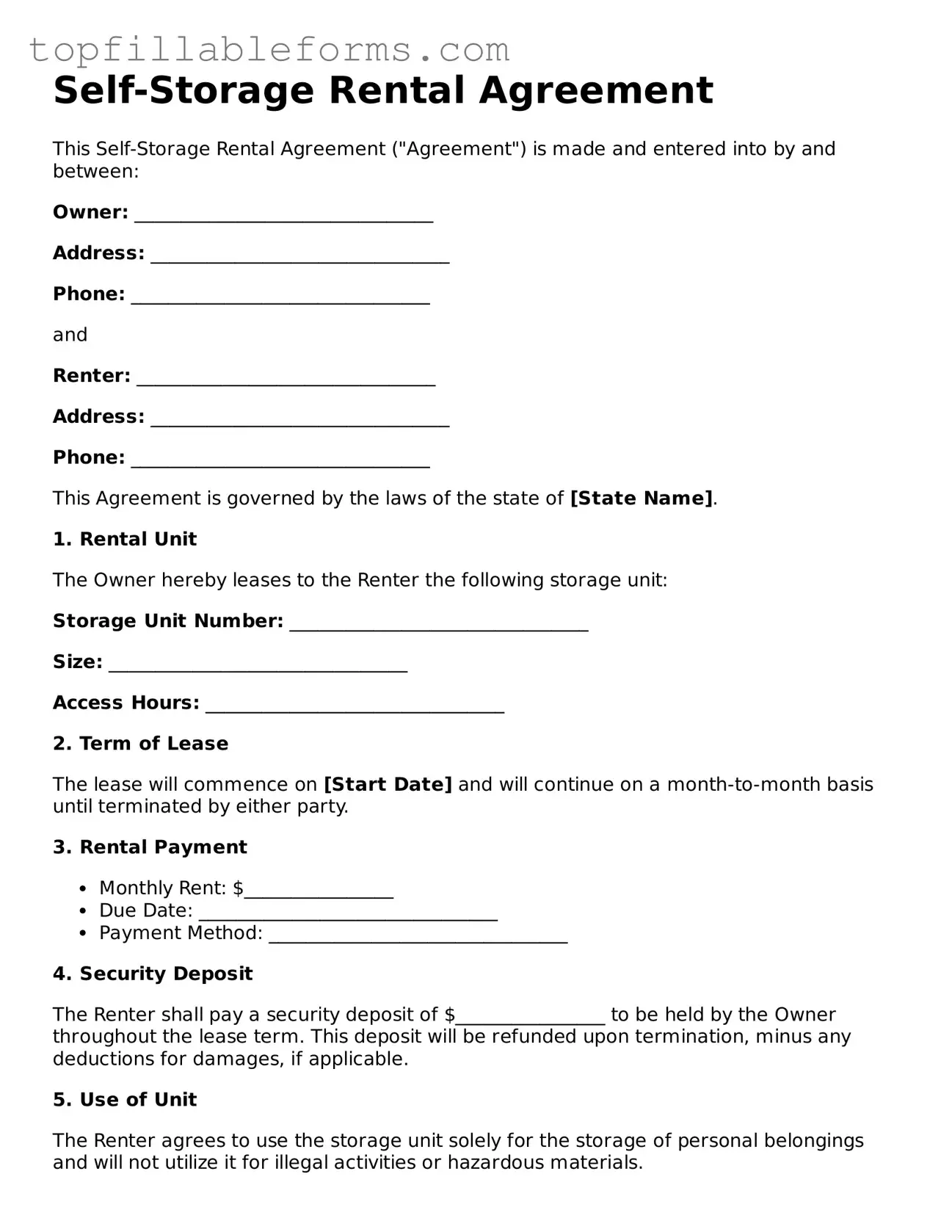Free Self-Storage Rental Agreement Form
A Self-Storage Rental Agreement is a legal document that outlines the terms and conditions between a storage facility and a renter. This agreement specifies the rights and responsibilities of both parties, ensuring a clear understanding of the rental arrangement. It serves as a protective measure for both the storage provider and the customer, detailing payment terms, access rights, and liability issues.
Open Self-Storage Rental Agreement Editor Here

Free Self-Storage Rental Agreement Form
Open Self-Storage Rental Agreement Editor Here
Finish the form now and be done
Finish your Self-Storage Rental Agreement online by editing, saving, and downloading fast.
Open Self-Storage Rental Agreement Editor Here
or
▼ PDF File
